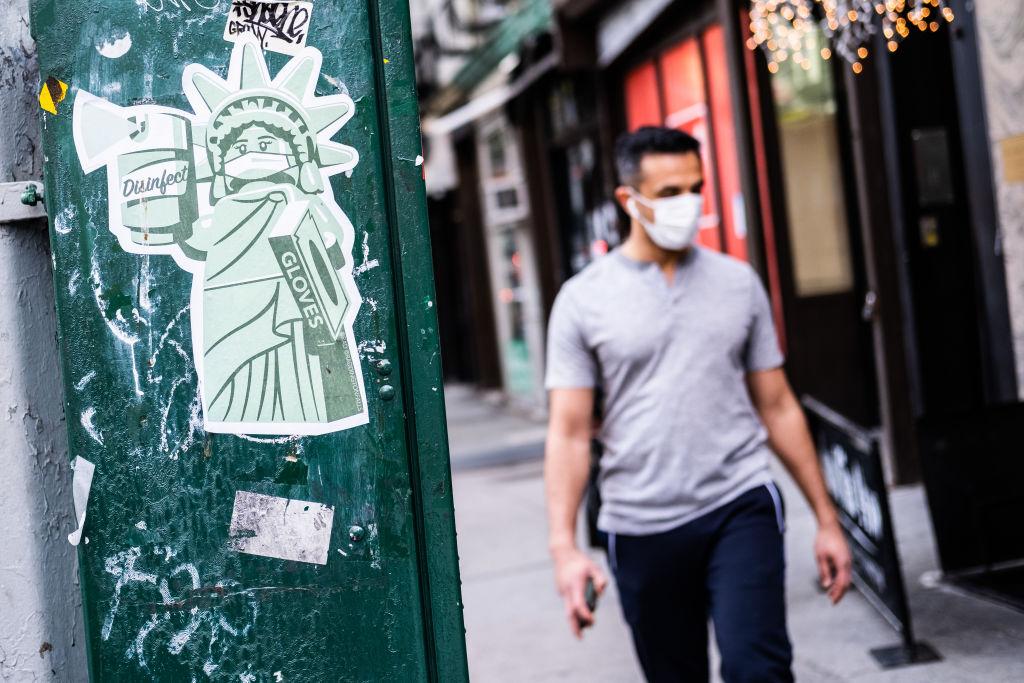40 percent of Americans say they personally know someone who has had coronavirus


A free daily email with the biggest news stories of the day – and the best features from TheWeek.com
You are now subscribed
Your newsletter sign-up was successful
The percentage of Americans who personally know someone who has had COVID-19 has jumped 14 points since last month, a new poll has found.
In a Monmouth University survey released on Monday, 40 percent of Americans said they personally know someone who has gotten the coronavirus, up from 26 percent who said as much in a Monmouth poll released on April 13. Of those who do know someone who contracted COVID-19, 22 percent said this person was a friend, neighbor, or social acquaintance, while 14 percent said a family member contracted it and seven percent said a co-worker contracted it. Two percent of respondents also said they've had the virus themselves. The number of confirmed COVID-19 cases in the United States has passed 1.3 million.
Although more Americans know someone who has had the virus, Monmouth notes fewer now describe themselves concerned that a family member will become seriously ill than did last month. In April, 50 percent of respondents described themselves as very concerned about that possibility, but in the new poll, 42 percent said as much. Twenty-eight percent of respondents also said they are "somewhat" concerned about a family member becoming ill, down from 33 percent last month.
The Week
Escape your echo chamber. Get the facts behind the news, plus analysis from multiple perspectives.

Sign up for The Week's Free Newsletters
From our morning news briefing to a weekly Good News Newsletter, get the best of The Week delivered directly to your inbox.
From our morning news briefing to a weekly Good News Newsletter, get the best of The Week delivered directly to your inbox.
"Concern about COVID seems to have returned to where it was in the early days of the public response to the pandemic in this country," Patrick Murray, director of the independent Monmouth University Polling Institute, said.
Monmouth's poll was conducted by speaking to a random national sample of 808 U.S. adults over the phone from April 30 to May 4. The margin of error is 3.5 percentage points. Read the full results at Monmouth.
A free daily email with the biggest news stories of the day – and the best features from TheWeek.com
Brendan worked as a culture writer at The Week from 2018 to 2023, covering the entertainment industry, including film reviews, television recaps, awards season, the box office, major movie franchises and Hollywood gossip. He has written about film and television for outlets including Bloody Disgusting, Showbiz Cheat Sheet, Heavy and The Celebrity Cafe.
